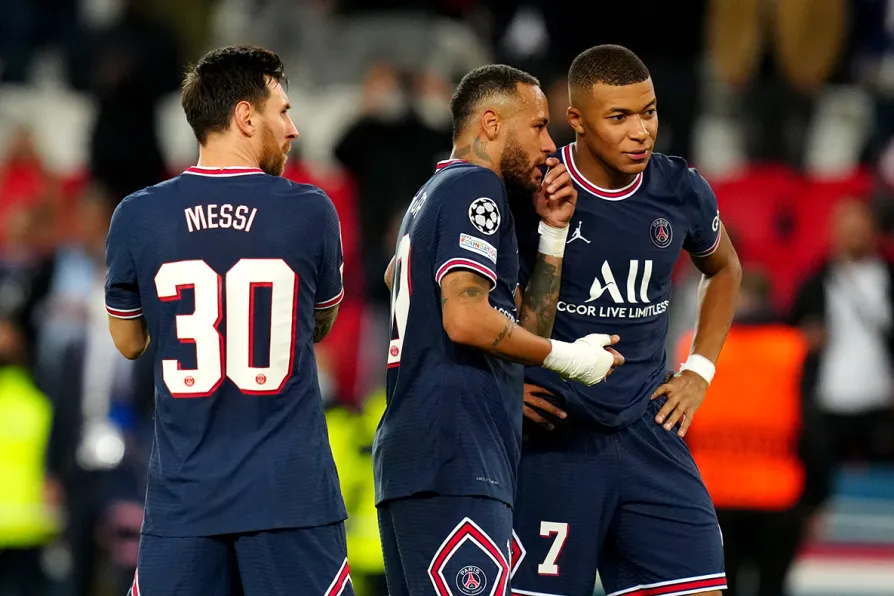Sporting calendar hit by regional instability with tournaments in the Gulf abandoned

 FOOTBALL’S FINEST: PSG stars Lionel Messi (left) Neymar Jr (centre) and Kylian Mbappe
FOOTBALL’S FINEST: PSG stars Lionel Messi (left) Neymar Jr (centre) and Kylian Mbappe
AS THE pomp of Thursday’s Thanksgiving NFL matches came just a day after the similar ceremony of Paris Saint-Germain’s latest outing in the Champions League, it was easier to draw comparisons between the two spectacles.
Not necessarily comparing this game of association football with the nitty-gritty of the various plays, collisions, and intensity of American football, but in the idea of a defensive team looking to win the ball back before leaving the pitch to be replaced by a whole new set of players responsible for offensive play.
When Lionel Messi, Neymar, and Kylian Mbappe were hanging around the centre circle, waiting for the other eight players to win the ball from their opponents Manchester City, they may as well have been on the sidelines awaiting their turn.

As the historic ground prepares for its emotional farewell, even visiting teams like Manchester City are paying tribute to one of English football’s most storied stadiums, writes JAMES NALTON













